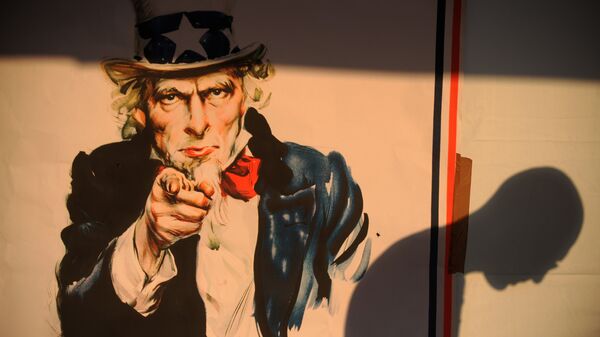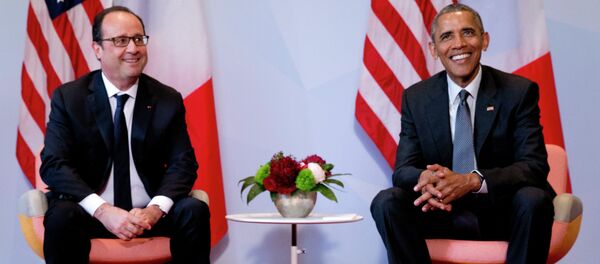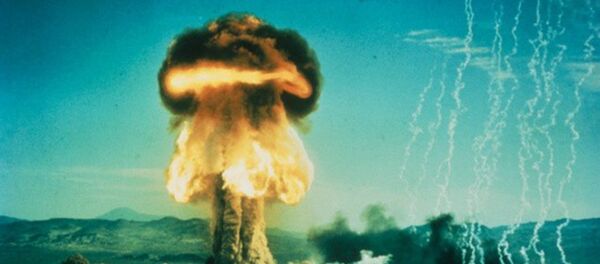The writer began his piece by noting that "today there is an elementary truth that is being ignored by philosophers in both Russia and Europe: that history gains a new impetus for development when one of its participants puts forth new rules of the [geopolitical] game, forces the rest to play according to these rules, and begins to emerge victorious, using these rules."
Looking to history for examples, Chelemendik recalled that "this is how all the great conquerors and empires acted, long before the globalists and neoconservatives and even before Genghis Khan."
"And if we are talking about Russian history," he noted, "we can remember how Peter the Great changed the rules of the game in Europe, making Russia into a new actor in international politics by creating a fleet and a powerful regular army, defeating the previously invincible King of Sweden, and forming the foundations of Russia as a new empire. After that, Russia defeated Napoleon, and once again set up its own rules for Europe, remembered in history as the Holy Alliance" between the imperial powers of Russia, Prussia and Austria.
"Following the Russian Revolution and the world wars, the Soviet empire was born, which once again dictated its own set of rules to the world. These had different names –the Warsaw Pact, the international communist movement, the People's Democracies, the struggle against imperialism, but they were all rules that the USSR brought to the world, and the world was forced to at least in some measure play by them."
Playing by Someone Else's Rules
Chelemendik noted that "after the collapse of the USSR, Russia for a quarter century now has played by rules which were imposed on it from outside and logically, has lost out as a result. One cannot win a game of cards with a heavily armed gang of swindlers who have only aces in their deck, and all our arguments that the deck should have only four aces fall on deaf ears."
The writer also noted that "today we have witnessed the last attempts by Russia to act in Europe according to someone else's rules, which we can conditionally call liberal parliamentary democracy, globalism, and a secret world oligarchy." In his view, "Russia cannot win at such a game."
The writer noted that recent events in Greece, "the illustrative episode of Alexis Tsipras and his infamous rebellion against the dictates of Brussels, demonstrates who controls Europe and how, what resources they have and what they are capable of. The reality is that they can do anything and everything they want."
In Chelemendik's view, "against this background, the repeated statements by thinkers in Russia and Europe about how everything is changing, and how Europe has stood up from its knees, gathered together and remembered the principle of sovereignty, about plans of the political Left and Right to unite, do not sound at all serious."
Accepting Reality
According to Chelemendik, the first step for Russia to restore its position as an independent actor is to definitively "accept this reality as a fact, and not to fool either ourselves or the mass of sympathizers."
In Chelemendik's view, "the ability to change the political situation in key European countries and to bring one's protégés to power –this has long been the purview of only the Anglo-Saxons, and they subsequently gave up this knowledge to the US. But this has never been a strong suit for Russia, and never will be."
The writer worrying suggested that if Russia continues to play by the rules of the game established by the West, it will never be able to achieve its strategic goals, including the prevention of a new European war. "There is a well-known super-task in Russian European policy: to prevent a new conflict with Germany, especially in light of Washington's efforts to set the Germans up for a war with Russia over Ukraine. Can Russian policy cope with this task, flirting with the political minorities of German politics? Of course not. Then why do we attempt to persuade ourselves that everything will change –that these politically marginalized forces will grow up and show themselves?"
The writer angrily recalled that the case of Ukraine, "where Russian and Ukrainian oligarchs simulated political activity and trolled each other for over 20 years," demonstrated the absence of any substantive policy on Russia's part to influence the Ukrainian political elite, and society at large. "If we were not able to create the tools of influence in Ukraine, having all the aces in our hands –the same people, the same language, tremendous potential media influence, then what grounds do we have to think that we can create such tools in Germany or Italy, or even in Latvia, where Russians are half of the population, but 'pro-Russian' politicians can be counted on one hand?"
Accounting for Russia's Real Tools to Challenge the Status Quo
Subsequently, Russia, in his words, "must search for and find" other resources "through which to establish its own rules." According to the writer, "the situation in Europe has ripened for the acquisition of this new strength. Europe awaits social upheavals and conflicts of an immense magnitude. Europe today does not know what to do with the hundreds of thousands of refugees who have been brought onto its territory by obscure forces, and the millions more yet to come."
In Chelemendik's view, "Russia can choose to effectively help Europe to get out of this trouble –not with finances, of course, but through useful action, given that the flow is easy to stop, technically speaking, if the desire exists." The immigration crisis, in his view, is but "one of the new sources of influence, and its importance is only set to increase."
Other areas in which Russia can help Europe, according to the author, include the fight against terrorism, "which has already penetrated the continent, as well as with religious and ethnic conflicts, with economic shocks, with 'Maidans' of various kinds, and with hybrid wars, all of which may soon begin in Europe as a result of existing problems." In Chelemendik's words, "the successful use of these new resources" to assist Europe are certain to assist in the creation of "new rules of the game" favorable to Russia.





